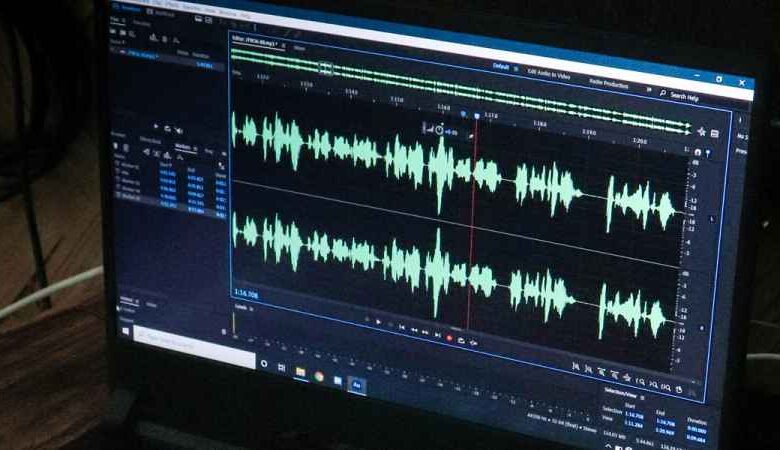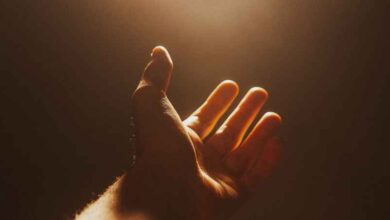How Infrasound Could Explain Your Paranormal Experiences

Infrasound is one of those things we’re all taught in high school science that we think we’ll never need to know about later in life. Then, we get interested in the paranormal, and suddenly, infrasound is mentioned in relation to hauntings — sometimes as a cause, sometimes as a way to boost activity, and even as a proposed frequency range for spirit communication.
Infrasound refers to sound waves with frequencies below 20 Hz, the lower limit of human hearing. When we talk about the frequency of a sound, we mean its pitch. So infrasound is deep bass tones that are just too deep for our ears to pick up, even when they are very loud. Infrasound is so low in frequency that it is usually felt rather than heard, like when you stand in front of a speaker in a nightclub and you can feel the bass in your chest.
Other natural causes of infrasound include volcanic eruptions, ocean waves, avalanches, meteors entering the Earth’s atmosphere, and severe weather such as thunderstorms, strong winds, tornadoes, and hurricanes. Auroras are also a source of infrasound. The natural light display of auroras, caused by charged particles from the Sun interacting with the Earth’s atmosphere, can also generate infrasound. This is due to the energy release and movements in the upper atmosphere. There are also human-made sources such as explosions, machinery, and even wind turbines.
Some paranormal researchers suggest that infrasound can affect people in ways that might explain certain reports of ghost sightings and eerie feelings in supposedly haunted locations. Because infrasound can cause physical sensations such as vibrations in the chest, feelings of anxiety, or a sense of unease, it is believed that these sensations could be misinterpreted as paranormal phenomena.
For instance, a person exposed to infrasound in an old, creaky house might feel a sense of dread or experience odd vibrations, leading them to believe they are in the presence of a ghost. Additionally, infrasound has been known to cause visual hallucinations by vibrating the eyeballs, which might explain some reports of seeing ghostly figures or strange lights.
But infrasound’s link with the paranormal doesn’t end there. Because infrasound consists of low-frequency sound waves, these waves have the ability to cause physical vibrations in objects and even in the human body, something that can be mistaken for everything from the sighting of apparitions to poltergeist activity.
When infrasound waves match the natural frequency of an object, they can cause it to resonate. Resonance can amplify the vibrations, making them more noticeable, and can affect structures, objects, and even the human body. This could explain reports of objects shaking, doors creaking, or other unusual movements in haunted locations.
People exposed to infrasound may feel vibrations in their chest, abdomen, or other parts of their body. These sensations can be unsettling and may contribute to feelings of anxiety or fear, but scarier still is that they can also cause vibrations in the eyeballs, leading to visual disturbances. This can manifest as seeing shadows, flickering lights, or other visual anomalies that might be mistaken for ghostly apparitions.
This is something you should be aware of when investigating a haunted location. Conversely, some paranormal investigators believe that purposely introducing infrasound into a location can act as a form of energy that might fuel or amplify paranormal activity. This hypothesis is based on the idea that ghosts need energy to manifest and that playing infrasound in a location can provide this necessary energy.
Another area of paranormal research where infrasound is often talked about is Electronic Voice Phenomena (EVP), which are ghostly voices caught in electronic recordings during investigations. These sounds are heard during the playback of the recording but were not audible at the time of recording. Some investigators claim that these sounds weren’t audible at the time because they were infrasound. In fact, you’ll often hear ghost hunters say that spirits communicate on lower frequencies, although few actually understand what they’re claiming here.
The problem with this theory is that the types of audio recorders used in paranormal investigations – or any commercially available audio recording devices – do not have the capability to capture frequencies below the human hearing threshold. To record infrasound, you need very expensive microphones that are specifically designed to pick up low-frequency sounds. These very microphones are often used in scientific research and industrial applications.
Regular microphones used in most consumer recording devices, such as smartphones and handheld recorders, are not capable of detecting infrasound. Other investigators have been known to use a digital sound level meter to attempt to measure infrasound, but even these don’t typically have the ability to measure sounds under 20 Hz.
Even if a recording device were fitted with a suitable microphone, the device itself must also be capable of processing and storing infrasound frequencies. Professional-grade audio equipment used in studios or by researchers can capture a wide range of frequencies, including infrasound, but these are typically not used by amateur ghost hunters.
Once captured, the infrasound recordings need to be played back with software that can process low-frequency audio. Standard audio editing applications may not be suitable, so specialised analysis tools are often required to properly identify and interpret infrasound data. Furthermore, standard audio playback equipment, like regular speakers and headphones, is not designed to reproduce infrasound. These devices are generally built to handle the frequencies within the human hearing range and often filter out anything below that.
Instead of listening, investigators can use software to visually analyse the infrasound recordings. Spectrograms, which are visual representations of the frequency spectrum of audio, can help identify patterns or anomalies that may correspond to EVPs or other phenomena.
In most cases, if ghost hunters believe they are capturing EVPs in the infrasound range, they might be mistaking low-frequency sounds within the human hearing range for true infrasound. However, human voices typically range from about 85 Hz to 255 Hz, depending on the pitch of the voice. Men generally have lower-pitched voices (85 Hz to 180 Hz), while women have higher-pitched voices (165 Hz to 255 Hz). Even at the lowest frequencies, human voices are still well above the infrasound threshold of 20 Hz.
If researchers are capturing what they believe to be voices at extremely low frequencies, these would not sound like human voices. Instead, they would be distorted and difficult to recognise as speech due to the physical limitations of how sound waves behave at such low frequencies.
For most paranormal investigators using standard equipment, it is unlikely they would directly hear any infrasound captured during an investigation. However, you might be able to identify its presence at a location by paying attention to any unusual vibrations or movements in the environment.
Although these vibrations might be an indication of infrasound, you won’t know its exact frequency, but you can assess the likelihood of it being infrasound by considering possible sources of the vibration, such as nearby machinery, traffic, or natural events like wind or seismic activity.
By understanding infrasound, we can gain insight into how our environment might influence our perceptions of the unknown, whether it’s ghosts in a haunted house or a fleeting dark figure you catch in the corner of your eye.




